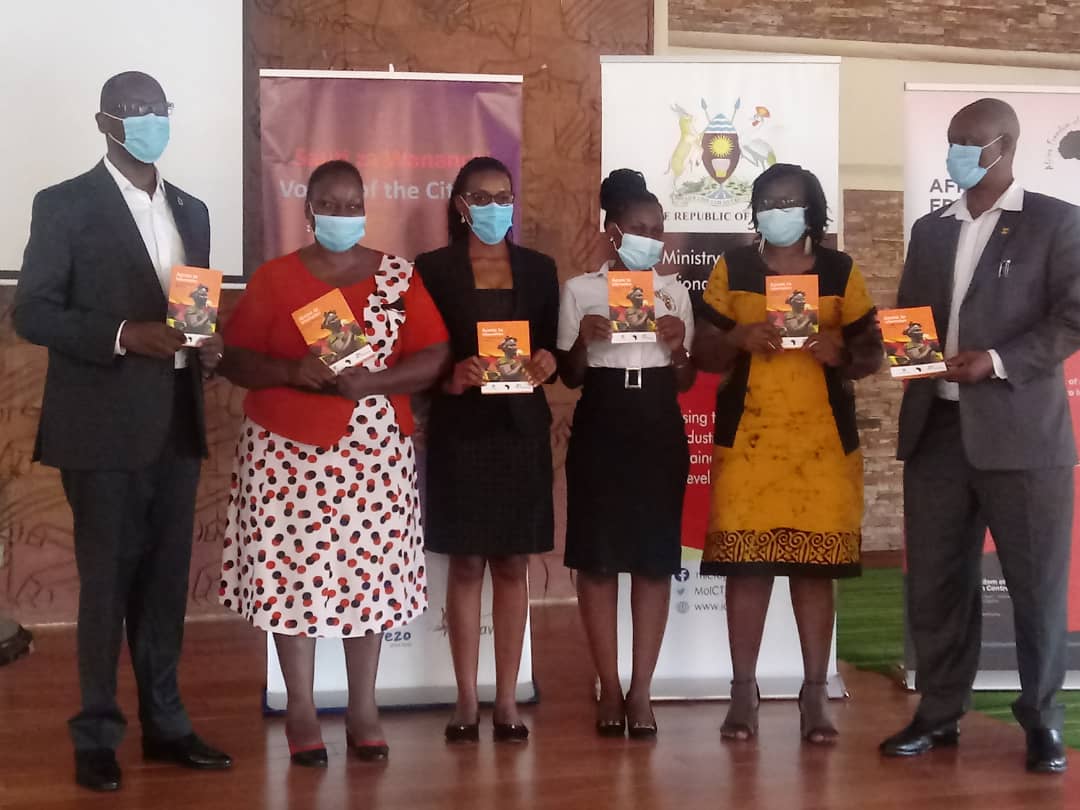A research report by Twaweza together with the Africa Freedom of Information Centre (AFIC) has revealed that 99 percent of Ugandans have no or little knowledge about the Access to Information Act and how to implement it.
A report named ‘an informed society Ugandans citizens’ experiences and opinion on access to information’ which was launched on Thursday at Golf course hotel highlighted that the rate at which Ugandans yearn to access information from the public offices is gradually decreasing.
Legally, the right of access to information is enshrined in article 41 of the Constitution of the Republic of Uganda, 1995 which provides that, “Every citizen has a right of access to information in the possession of the state or any other organ of the state except where the release of the information is likely to interfere with the security of the state or the right to the privacy of any other person”.
Uganda is among the first African countries to enact a right to information law, the Access to Information Act (ATIA), 2005 and later the Access to Information Regulations, 2011 whose sole purpose was to promote transparency and accountability in all organs of the state by providing the public with timely, accessible and accurate information.
However, ever since such laws were enacted, there is still a very big gap between the citizens and the public information since the majority of the citizens lack knowledge of the provisions of ATIA among citizens and public officials, and the tedious procedures of requesting information all of which impact on the level of citizens’ information requests.
While presenting the findings of the report, Marie Nanyanzi the senior programs officer of Sauti za Wananchi at Twaweza said that 71 percent of Ugandans support the right to access information.
“1 percent only know about their rights to access information and when it comes to those that were given the information they asked for; in 2017, 66 percent were given that information however in 2020 the number decreased to 54 percent. When it comes to how easily they access the info; in 2017, 54 percent said it was easy whereas, in 2020, it decreased to 38 percent.”
Ms Nanyanzi added that every year that goes by, accessibility to public information in Uganda is becoming very hard for the common man. “The information that Ugandans usually are interested in is that of services such as health, education and also a bit of accountability however we also found that the majority of those in charge to deliver such info, have little or no confidence to deliver it, nevertheless, also citizens lack the confidence to inquire some info especially corruption cases.”
She added, “We also find out that overall, when one asks Ugandans where one can go and get certain information on some services provided by local government, over 70 percent don’t know. For example, Among those planning to start a business, 70 percent don’t know where they can go to access the info about the business they desire to start. And when it comes to knowing government developmental programs such as Myoga, Operation Wealth Creation or Youth Livelihood funds 66 percent don’t know where they would go to get the info.”
Ms Nanyanzi further noted that the government has put several initiatives in place to improve the lives of Ugandans but as long as the percentage of those ignorant about such programs is bigger, they will not yield any good results but rather they will escalate corruption tendencies, this means that the government will be spending a lot but Ugandans will remain poor.
Why access to public information is still hard
Ms. Nanyanzi noted that the custodian of the information are also still ignorant about the access to information law which calls them to deliver information to Ugandans whenever they ask for it.
“At times the custodians of the information go through tense situation politically which curb them to give out information because if they have not received training on the information act and what are the parameters to follow while giving out a certain package of information. They will be hesitant although the law forces them to deliver information,” she said.
Also, the majority of the citizens don’t know which offices to go to when they need some information which makes them be tossed and at times this lures them into practices of bribery which reduces their confidence that they can get information from the public offices.
Meanwhile, as a way of unlocking the challenges to access of information for all Ugandans to promote inclusivity, transparency, accountability and good governance, Twaweza and AFIC formed an Access to Information Guide for Civil Servants which they can follow to deliver information legally to citizens.
Do you have a story in your community or an opinion to share with us: Email us at Submit an Article








